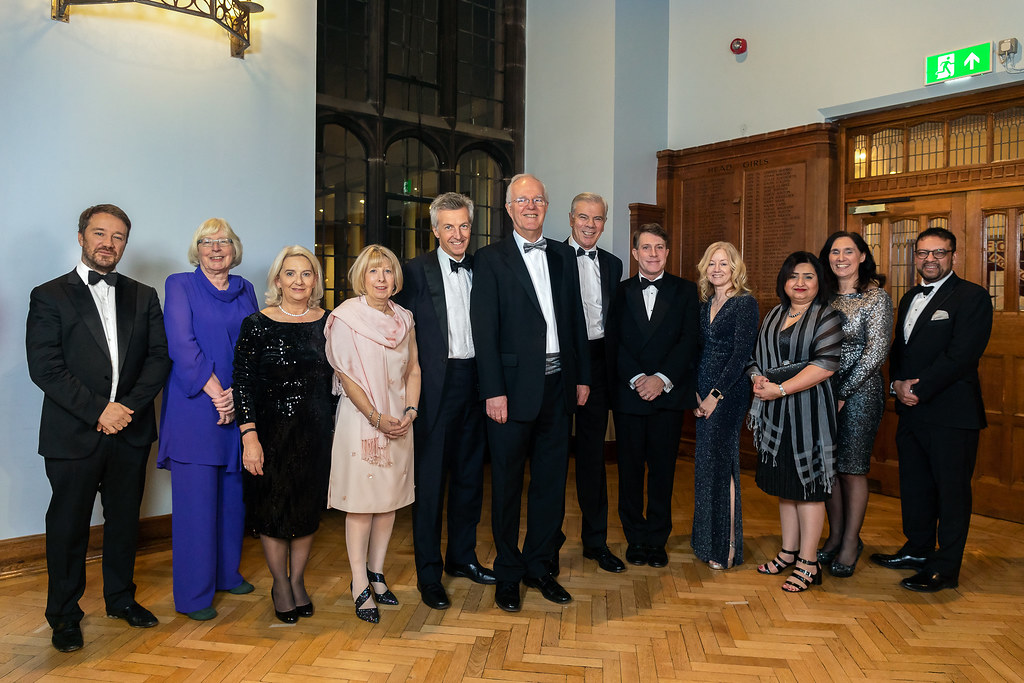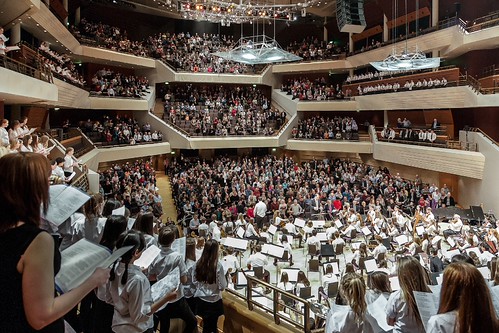The origins of the Boys' School can be traced back to at least 1516, when the Bolton Grammar School for Boys was recorded as being "a going concern". In 1644 it was endowed by Robert Lever and so began a long and close relationship with the Lever name.
The Bolton Girls' Day School was established in 1877, inspired by a group of public-spirited Bolton citizens, and was one of the earliest public day schools for girls in the country. Housed in a room of the Mechanics' Institute, the Young Ladies Day School, as it was first known, opened its doors to twenty-two girls on 1 October. In the following decades, numbers rose steadily and the school was renamed Bolton High School for Girls. In 1891, the school moved to larger premises on Park Road (where the current Junior Boys' School stands), which were opened by the suffragist Mrs Millicent Fawcett with 67 girls.
In 1913 Sir William Hesketh Lever, the first Viscount Leverhulme, gave a generous joint endowment to the High School for Girls and the Bolton Grammar School for Boys on condition that the two should be equal partners known as Bolton School (Boys' and Girls' Divisions). On 1 April 1915, the Bolton School Foundation formally came into existence.
William Lever's vision included the building of a new school, with one wing for boys and one for girls. War delayed the construction and it did not begin until 1924: it was only fully completed in 1965, though the move to the new campus began in 1928.
The School recently celebrated its long history with a year of Centenary activities in 2015, 100 years after the School was re-endowed, and 500th anniversary celebrations in 2016.
Discover Our History

In 1915, Lord Leverhulme brought together Bolton Grammar School for Boys and Bolton High School for Girls under one foundation sited on Chorley New Road, split into the Boys’ and Girls’ Divisions that exist today.
In 1516, Bolton Grammar School for Boys was recorded as “a going concern”. This is the earliest known reference to the school which would ultimately form Bolton School Boys’ Division. It is also the first record of a school in Bolton, and one of the earliest in Lancashire. Consequently 2016 is the 500th anniversary of education in Bolton.
In 2015 and 2016, the School held a variety of celebrations in honour of these two occasions. These are recorded in the gallery below:

The School Library maintains the Local and Special Collections and the Chained Library. It also has custody of the School's earliest archival records that were formerly kept in the School Chest. The library regularly produces displays and exhibitions to draw attention to important historical, literary and social topics. Whenever possible, these draw upon the School's historic artefacts and documents.
The Local Collection
An interesting body of material relating to the geography and history of Bolton and the Greater Manchester conurbation: this material is housed separately because it is so frequently used for the students' research projects.
The Special Collections
Rare or unusual books which the Library uses for its displays and exhibitions. These range from collections of commemorative magazines and newspapers to copies of the celebrated Yellow Book, an early edition of Samuel Johnson's Dictionary and the Latin dictionary of Robert Ainsworth (1746), the School's most significant scholar of his generation.
RMS Titanic
The School has a small collection of interesting items relating to the RMS Titanic: Sir Arthur Rostron, Captain of the Carpathia, which came to the aid of Titanic's stricken passengers, was a pupil at the school.


